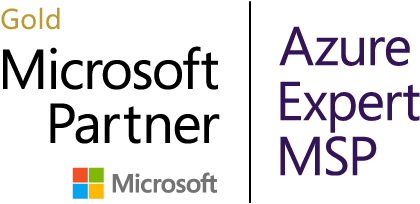“The blockchain is an incorruptible digital ledger of economic transactions that can be programmed to record not just financial transactions but virtually everything of value.”
– Don & Alex Tapscott, authors of Blockchain Revolution
 As we enter 2019, the importance of emerging technologies for driving business outcomes for non tech-focused companies is increasing.
As we enter 2019, the importance of emerging technologies for driving business outcomes for non tech-focused companies is increasing.
To accommodate a growing IT ecosystem, companies are building dynamic, digitalized ecosystems and moving towards platform-based business models.
In this article, we’ll explore blockchain and its role in the enterprise digital ecosystem.
What Is Blockchain?
Imagine a document that is duplicated thousands of times across a network of computers. Now imagine that this network is hooked up to a system that keeps every instance of this spreadsheet up to date in a way that is publicly verifiable and completely secure.
This is the essence of what the blockchain does. The blockchain exists in a state of consensus, reconciling every action that occurred in a ten-minute period (each period called a “block”). Each block has public transparency data embedded in it. This has several advantages. Because information on a blockchain exists as a shared, continually reconciled database, it exists across thousands of locations. This makes it virtually impenetrable to cyber-attack. It also simplifies making the information public and easily verifiable.
Who Is Blockchain For?
One of the likely first adopters of Blockchain will be financial institutions. An example of how such organizations might apply blockchain is to cut out the middleman in financial transactions like stock trades and money transfers. By creating a new way to verify identity and transactions instantly, the necessity of a stock broker (real or virtual) diminishes. The same concept applies to processing money transfers – blockchain will reduce the need for banks to verify and process the $430+ billion dollars in money transfers sent annually.
Blockchain isn’t just for banks. In July 2017, Juniper Research found that 60% of enterprises surveyed were “either actively considering, or are in the process of, deploying blockchain technology.” It’s no surprise then that companies like Oracle, IBM and SAP are looking to capitalize on the technology. Microsoft’s Azure Blockchain Workbench is a great example of how a big tech provider has helped organizations create solutions for everything from supply chains to enforcing data ownership to payment and reconciliation.
How Soon Will We All Be Using It?
It’s tough to say. Experts like Joshua McKenty, who helped develop Open Stack while working at NASA and now is head of Cloud Foundry at Pivotal, liken the Blockchain to peer-to-peer technology in the 90s.
“You couldn’t talk about Napster [and P2P] and have it be a positive conversation,” says McKenty. “Bitcoin has done that to blockchain. It will take us time to recover what bitcoin has done to get to something that is really useful [with blockchain].”
According to Rob May, CEO at Talla, as companies begin to understand the use cases for Blockchain, it’s likely that we’ll see a rise in adoption, which will continue to fuel demand and innovation.
“Blockchain has a bunch of different use cases, and they are usually either all lumped together or poorly understood separately,” May said.
“Right now, businesses are missing real blockchain opportunities and instead throwing blockchain in places where it doesn’t belong. For example, they are trying to use it for smart contracts, and that stuff isn’t ready. They also try to use it for cases that require a lot of speed, and again blockchains aren’t ready.”
To gain a better understanding of the real-world use cases for blockchain, as well as how you can use it in your organization to drive business outcomes, download our white paper: Blockchain for the Financial Sector and Supply Chain.
If the thought of implementing blockchain for your organization seems daunting, don’t worry: the team of experts at Hanu is here to help. Contact the top Microsoft Azure Managed Service Provider and start leveraging technology to drive revenue today.



